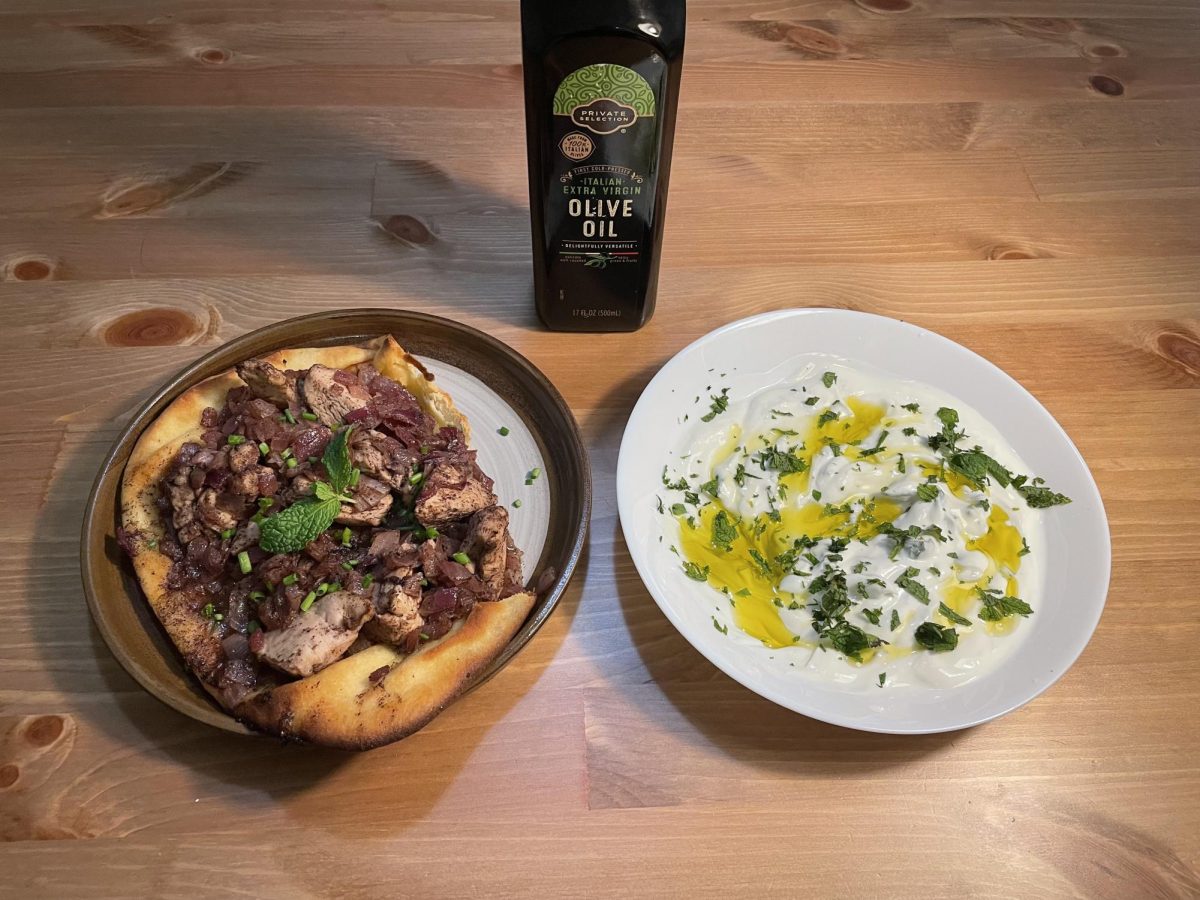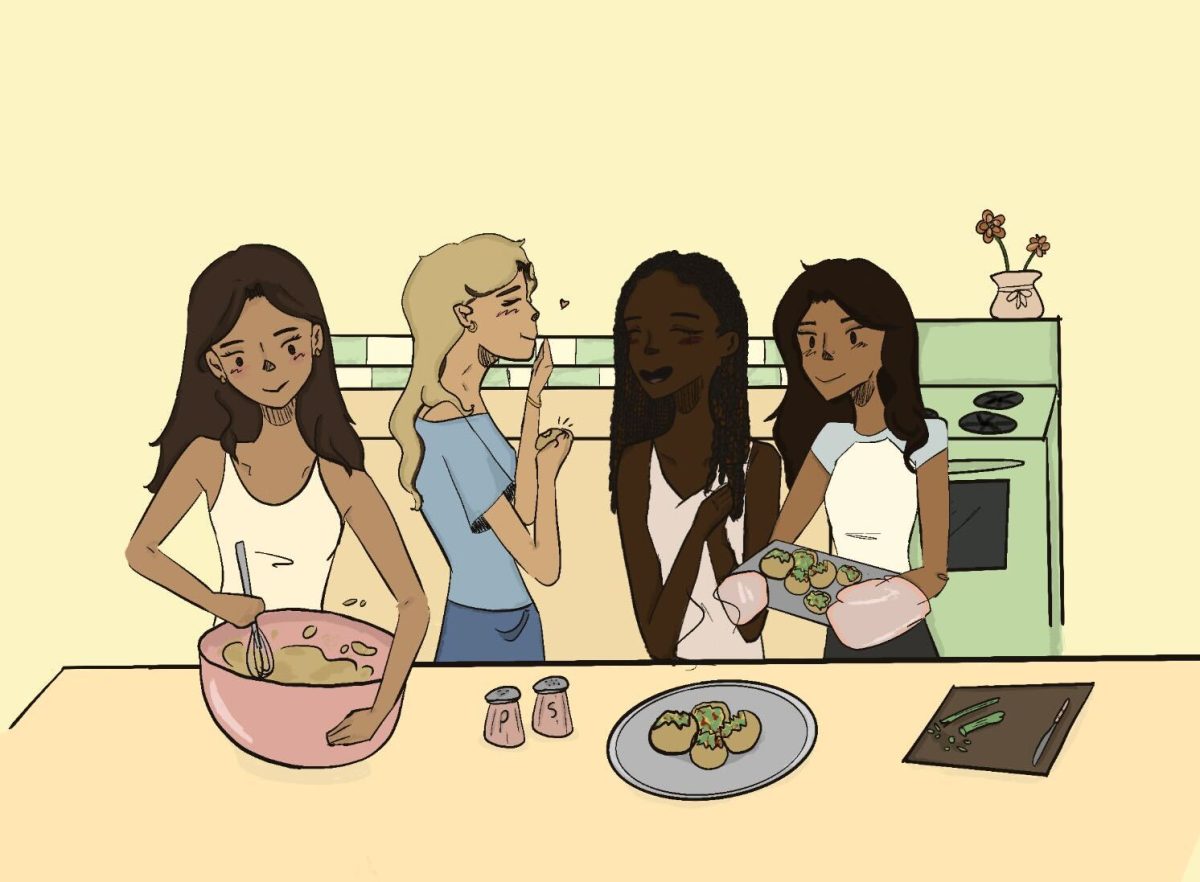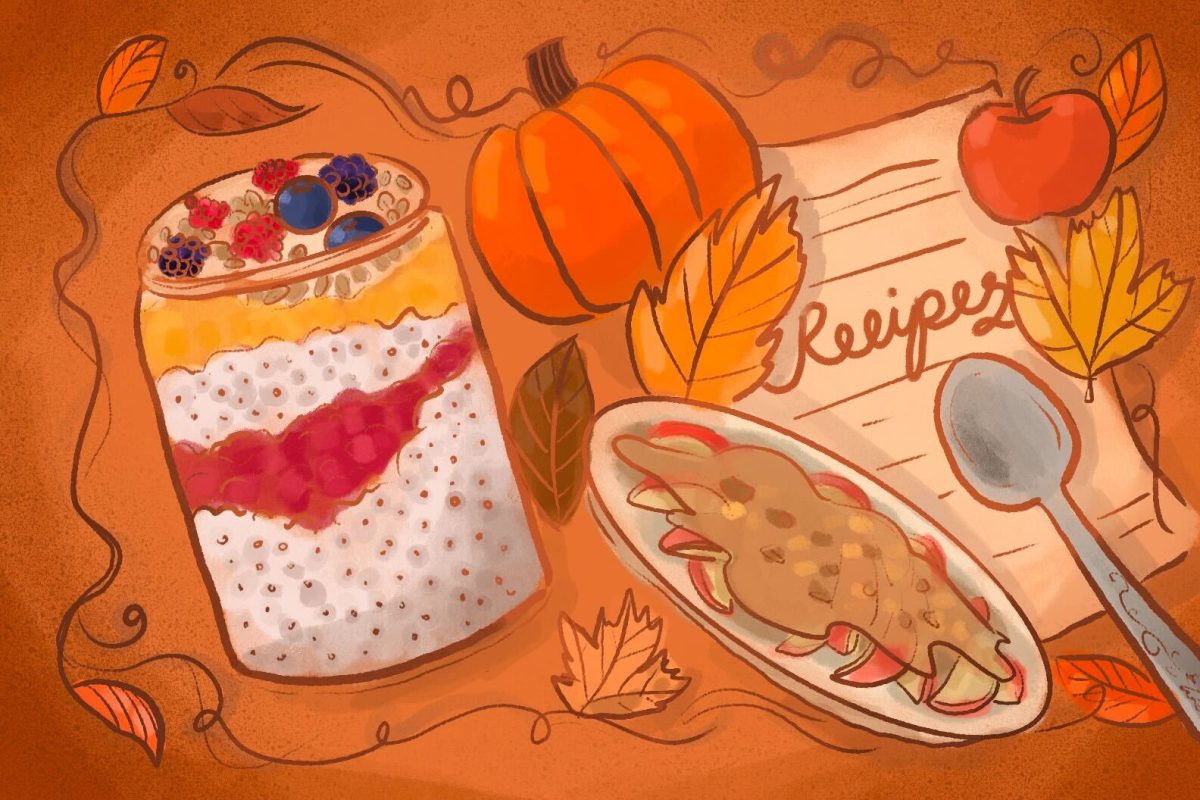This past weekend, I spent my time preparing a wonderful and traditional Palestinian dish called Musakhan, a spiced chicken and caramelized onion dish served over flatbread.
The recipe that I used was introduced to me by my friend, Jasmin. It was originally developed by her grandmother, who then passed the recipe down to the rest of her family. I, like many other Americans, was unfamiliar with the many different dishes Palestinian cuisine had to offer. I was excited to not only taste this new dish, but also try my hand at making it for the first time.
The process began with bringing a few cups of water in a pot to a boil. The most common meat of choice, and the one recommended in Jasmin’s mother’s recipe, was chicken breast. I seasoned the chicken with salt, pepper, a squeeze of lemon, allspice, and sumac — a common seasoning in many Palestinian dishes. Sumac is made from pulverized berries and has a tart, slightly bitter taste. After letting the chicken marinate, I moved it into the pot to boil. It was now time to contend with what Jasmin said was the most important part of the dish: onions.
“She uses a ton of onions,” Jasmin said when asked what makes her mother’s version the best. According to her mother, that’s where a lot of the flavor of the dish comes from. But it wasn’t just onions that this dish relied on; it also required olive oil, and lots of it. Across Palestinian and similar Mediterranean and Middle Eastern cuisines, olive oil is considered to be the nectar of the gods, and it is eaten with almost every meal. Whether on salads, in cooking, or drizzled over the top to give a dish a nice rich taste, olive oil is a staple of Palestinian cuisine.
Jasmin told me how olives themselves have transformed their cultural ubiquity into a symbol of resistance among Palestinians in Gaza who have been oppressed by Israeli occupation.
“With the Israeli occupation, they are occupying farm land, preventing farmers from growing more olives,” Jasmin said. “They are uprooting the olive trees and even burning them. So now olives have become a symbol of resistance and connection to the land.”
I also learned how a huge part of Palestinian cooking is the sense of community that starts long before the cooking process even begins.
“It is very much a community thing, picking olives and making your own olive oil,” Jasmine explained. “I remember it always being my favorite season when we get to harvest during October-November. My grandpa has an olive farm so every meal we’d cook we’d use olives that we picked from his farm.”
I poured a few tablespoons of olive oil into the pan and let the onions cook on low heat. Also per her mother’s recipe, I sprinkled some more sumac over the onions, giving them an even deeper reddish purple hue.
At this point, my kitchen smelled amazing. The aromatic spices being toasted in the pan almost distracted my nose from the fact that my eyes were still tearing up from cutting up two large red onions. After letting the onions get nice and soft, the next step was to add some of the chicken broth to the onions, along with, of course, more olive oil.
With the chicken done and the onions sauced up, the last step was to finish everything in the oven. I laid down individual pieces of naan, put the chicken on top, then poured the spiced, slightly sour onion mixture on top. I then put the whole thing in the oven for 10 minutes at 450 degrees. Ten minutes later, I had a traditional Palestinian Musakhan ready to eat. I grabbed myself a plate and dug in.
This would be a perfect time to pause and remind everyone to check your labels when you are buying yogurt at the store. Nobody likes to find out that the tart, plain yogurt that you mixed mint, garlic, and salt into and subsequently put in your mouth, turned out to be vanilla yogurt instead.
Aside from this slight mixup, Musakhan was one of the most comforting meals I’ve ever tried. The results betrayed the fact that this dish was so simple to make. The chicken was juicy and tender, the naan soaking up the sauce and the onions themselves. There was a tartness to the whole dish that was balanced out by the savoriness of the chicken. And the best part was getting to pick everything up with the naan at the end, which made for an enjoyable eating experience.
Some of us may still be unfamiliar with Palestinian cuisine and what it has to offer. It is easy for a lot of us to say we are angry, confused, or sad when we are helpless to fight back against oppression. Some of us do not know where to begin and place our feelings on issues that may seemingly have no effect on us whatsoever. However, when I asked Jasmin if there is anything that people should know about trying Palestinian food for the first time, she said that it can be for everyone.
“The way Palestinians are being portrayed is that everyone is sad and everyone is dying. While it’s important to acknowledge this, we forget about the fact that Palestinian culture and food is so rich, and it’s the way you connect with your family and community is such a big deal,” Jasmine explained.
So for those of us who don’t know where to begin, start by making a Palestinian dish and sharing it with the people you love.











Ayman • Jun 1, 2024 at 7:39 pm
Thanks for sharing the recipe, sounds delicious